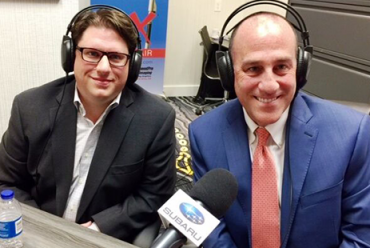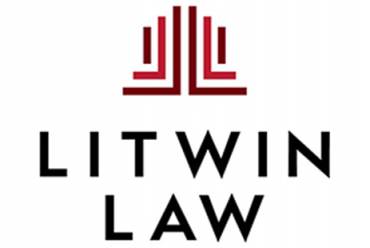Construction Contractors’ Georgia Sales and Use Tax Obligations
Construction projects are changing the landscape across Metro Atlanta and Georgia. Contractors are busy buying materials for use in construction contracts. As they spend money to buy the materials, contractors must understand their state sales and use tax obligations. In this edition of “Pass the Salt,” we provide several tips for contractors trying to stay abreast of Georgia sales and use tax laws.
What is a construction contractor? A construction contractor is a person who (or business that) engages in real property construction projects, by performing services and/or furnishing materials for constructing, altering, repairing, improving, dismantling, or demolishing the following: buildings, roads, bridges, viaducts, sewers, water and gas mains, streets, disposal plants, water filters, tanks and towers, airports, dams, water wells, pipelines and every other type of structure, project, development, or improvement that meets the definition of real property.
Contractor is per se consumer. In Georgia, the end-user must pay sales tax on purchases. For example, a clothing store at a local mall is not the end-user of clothing inventory, so it buys its inventory tax-free for resale. When the clothing store sells inventory to a consumer, then the clothing store must collect sales tax from the purchaser. Like the clothing store customer, a construction contractor is the per se end-user and consumer of all materials used to perform contacts; the contractor is never a “reseller” of the materials it buys. To that end, the construction contractor cannot buy materials tax-free for resale, because the contractor is not reselling the materials. A contractor may take delivery of materials in Cobb County and transport the items to the location of the project in, for example, the City of Atlanta. In that situation see “Accrual of Additional County Tax” below.
Tax Rate. The contractor must pay sales and use tax at the rate applicable to the county in which the contractor takes delivery of the materials, regardless of the contractor’s office address. Thus, a contractor whose business is located inside the City of Atlanta pays tax of 8.9% on materials purchases delivered to the Atlanta address. If the same contractor takes delivery of the materials at a Cobb County job site, then the contractor owes 6% tax on the materials purchases.
Contractors should not Charge Sales Tax – Contractors, as end-users, pay sales tax. But some contractors buy materials tax-free (for resale) and then charge sales tax to their customers. The contractors remit the collected sales tax to the Georgia Department of Revenue. But, if the Department later determines that the contractor should have paid sales and use tax on materials purchases, then the Department will assess the contractor for tax due on the materials purchases. The Department will not give the contractor a credit for taxes improperly collected from customers. For this reason, contactors should not charge sales tax.
Even if Separately-Stated. A contractor may believe that it can buy materials tax-free for resale by separately stating the materials from labor on the customer invoice. This is not true. A contractor must pay sales tax on materials it purchases regardless of how the contractor shows the materials on the customer’s invoice.
Sales and Use Tax Due on Purchases from Out-of-State Suppliers. Some out-of-state suppliers of construction materials are not obligated to collect Georgia tax and do not collect Georgia tax. This does not mean that the contractor that takes delivery of the materials in Georgia is relieved from the Georgia tax. The contractor must file a Georgia sales and use tax return (Form ST-3) to report and pay the tax. The contractor must file the return online at the Georgia Tax Center Web portal. The contractor must file the return using its sales and use tax number. If the contractor does not have a sales and use tax number, then the contractor should apply for a sales tax number.
Purchases for Jobs Outside Georgia. If the construction contractor arranges for delivery of the materials to a location outside Georgia, then the contractor does not have to pay Georgia sales and use tax. If the contractor arranges for delivery of the materials inside Georgia, then the contractor owes sales and use tax based on the delivery location. For example, a contactor that takes delivery of materials at a warehouse in Cobb County owes taxes imposed at the Cobb County rates: Georgia state (4%) and Cobb local (2%). Even if the materials are for a job to be performed outside Georgia, the contractor must pay Georgia taxes, because the contractor takes delivery of the materials in Georgia.
No temporary storage exemption. Some states relieve a contactor of sales and use tax on purchases of the materials to be stored in the state temporarily. Georgia does not have such an exemption. Thus, a contractor cannot avoid the Georgia sales and use tax, based on storing the materials in Georgia temporarily. Upon taking delivery of the materials at a Georgia location or upon bringing the materials into Georgia, the contractor must pay Georgia sales and use tax.
Accrual of the Additional County Tax. Contractors performing jobs in Georgia must acquaint themselves of their tax surroundings. Georgia has 159 counties that have different tax rates. Contractors must accrue and pay additional taxes when they move materials to a county with a higher tax rate. For example, a contractor based in Cobb pays the 6% tax (4% state tax and 2% local tax) on materials delivered to the contractor’s Cobb warehouse. If the contractor takes the materials to Toombs County for a project located in Toombs County, then the contractor must accrue and pay the additional Toombs County 2% county taxes (local tax and transportation tax). The accrual requirement is subject to maximum tax limitations.
Contractor Tries to Buy Materials Tax-Free Due to Project Owner’s Tax-Exempt Status. A contractor cannot buy tax-free any materials for a project performed for a property owner that, itself, is exempt from sales tax (such as a hospital, school system or gov’t agency). Nor can the contractor use the property owner’s tax exemption certificate to buy materials tax-free.
Contractor Cannot Use Customer’s Tax-Exemption Certificate. A property owner that is licensed to buy items tax-free cannot loan out or assign its tax-exemption certificate to a contractor for use in buying materials for a project. Under Georgia law, the contractor may not use a tax-exemption certificate to buy materials under any circumstances, even as an agent of the exempt property owner.
Contractor cannot ask the Tax-Exempt Entity to Buy the Materials. Some contractors try to avoid paying sales and use tax on materials by asking the tax-exempt property owner to buy the materials. This does not relieve that contractor from the sales and use tax. A contractor that enters into a construction project with an entity that is statutorily authorized to buy materials tax-exempt (e.g., a hospital authority) should not ask the tax-exempt entity to buy the materials tax-free using the entity’s exemption certificate. Under Georgia law, the contractor is required to pay the sales and use tax upon taking possession of the materials, even after the tax-exempt entity buys the materials tax-free. Contractors often overlook this little-known law.
Nonresident Contractors. Contractors with no bona fide place of business in Georgia (through maintaining a permanent domicile or business facility in Georgia) have filing obligations, including bond requirements, unique to their nonresident status. The details of these requirements are beyond the scope of this article. Nonresident contractors must also pay any additional tax on materials that they purchase outside Georgia. Thus, where a South Carolina contractor buys materials in South Carolina, pays the South Carolina tax, and then brings the materials into Georgia to use for a construction contract, then the South Carolina contractor may be required to pay any additional Georgia use tax.
Credit for Like Taxes Paid to Other States. The Georgia Department of Revenue offers credit for like taxes. For example, a nonresident contractor based in Aiken County, South Carolina pays 6% South Carolina state tax and 2% county tax on its materials purchases that are delivered in Aiken County, South Carolina. Upon bringing the materials into Georgia, the contractor owes a use tax that is based upon the county into which the contractor brings the materials. If the contractor brings the materials into the City of Atlanta, then the contractor must accrue and pay an additional City of Atlanta local tax of .9%. The Aiken County contractor gets credit for the 6% South Carolina state tax (applied against the 4% Georgia tax) and the 2% county taxes (applied against the Fulton County or DeKalb County local taxes).
Conclusion. A construction contractor must understand its sales and use tax obligations on materials purchases. Where the contractor does not file a sales and use tax return to report and pay taxes, then the Georgia Department of Revenue is not barred by a statute of limitations and can assess taxes going back several years. A construction contractor that has not complied with Georgia sales and use tax laws can take steps to minimize its liability by coming forward through a voluntary disclosure to the Georgia Department of Revenue to limit exposure and penalties (criminal and civil). This option is not available to every construction contractor, so the contractor should consult a state tax attorney about the best course of action.
Litwin Law represents individuals in state and local tax matters. Litwin Law deals with a variety of issues that arise during audit and during protest and appeal to the Georgia Tax Tribunal. If you or your client faces a sales tax issue or other audit issue, and you are unable to resolve the issue, Litwin Law can help.
For over 30 years, and as a recognized Super Lawyer since 2008, Richard Litwin has devoted his practice to multistate tax, state and local tax, and tax controversies. He has chaired the State Bar of Georgia’s Section of Taxation and is highly active on Georgia Department of Revenue committees.
Note: “Pass the SALT” is a blog of The Litwin Law Firm, P.C., d/b/a Litwin Law, and is dedicated to sharing views and ideas on state and local taxation. This document is an overview and summary of state and local tax obligations. This document is not intended to be, nor should be interpreted as, legal advice. For legal advice, the reader should contact an attorney.
Credits: This is a stock image. Source: https://stock.adobe.com/contributor/210142586/pablo?load_type=author&prev_url=detail








